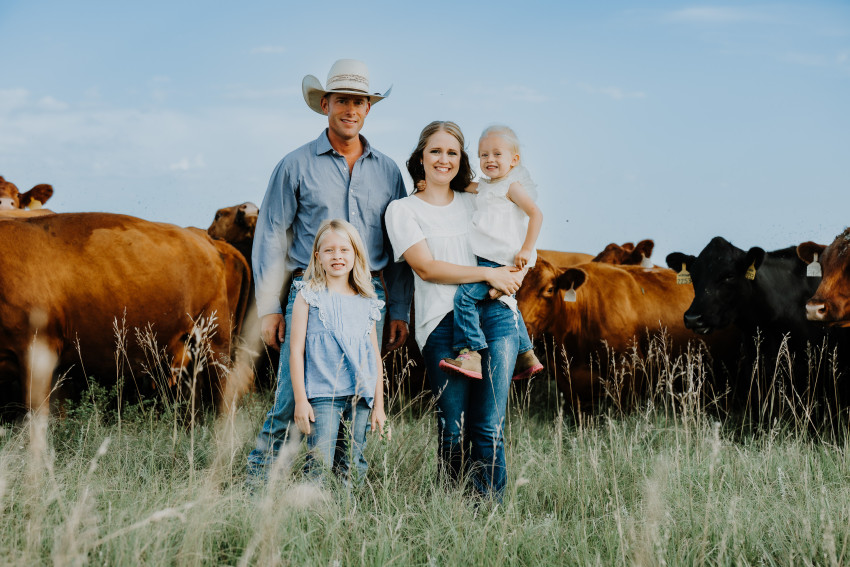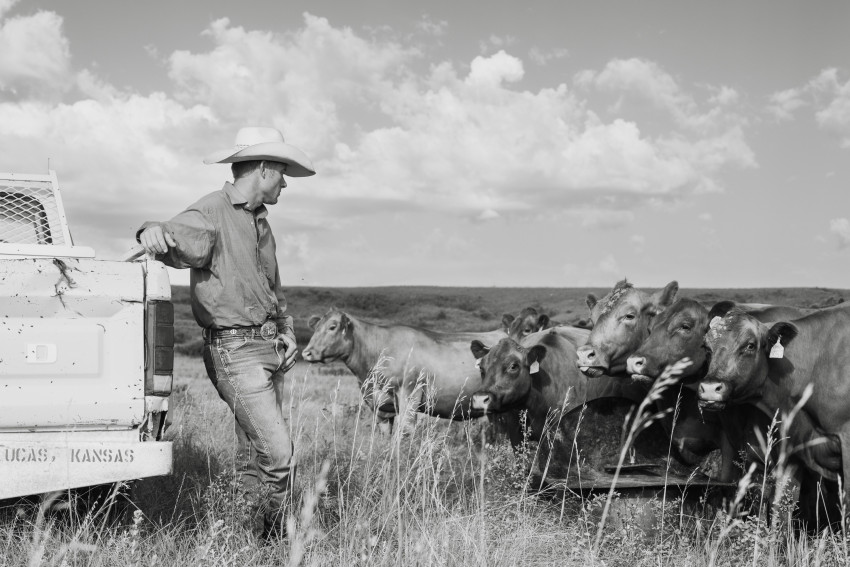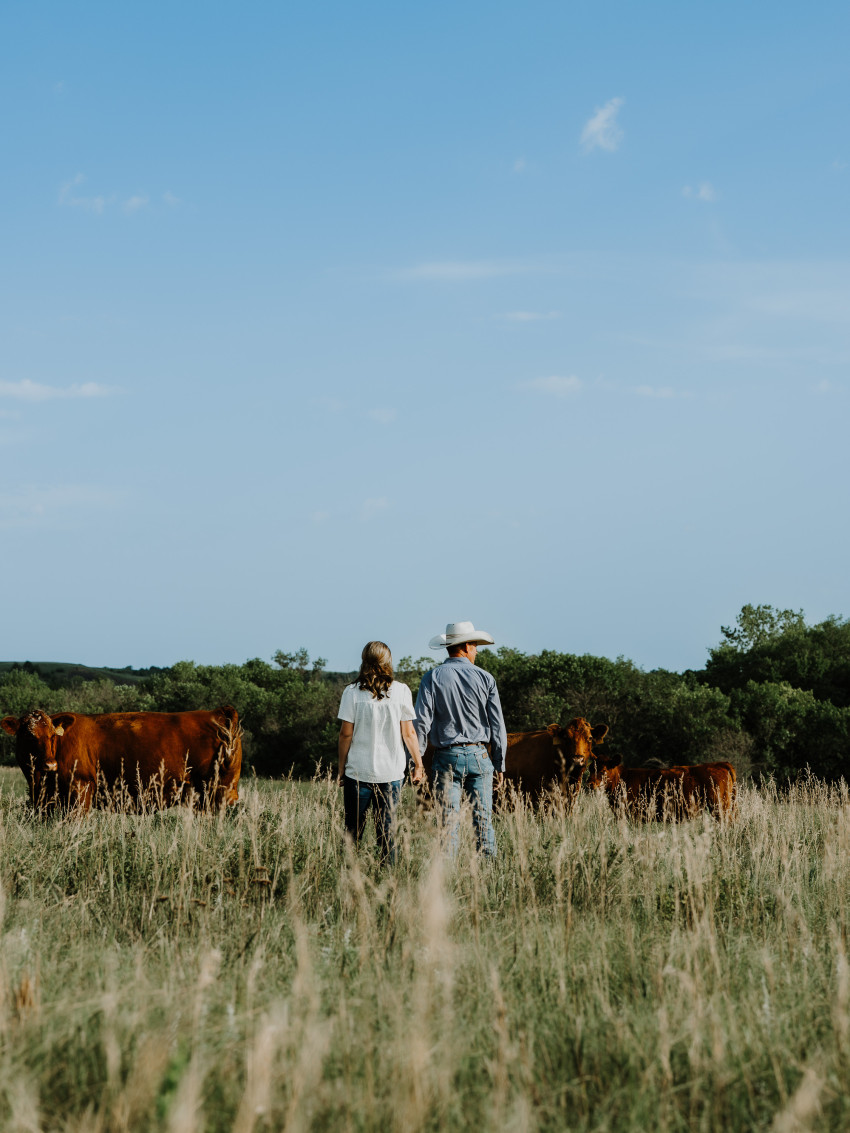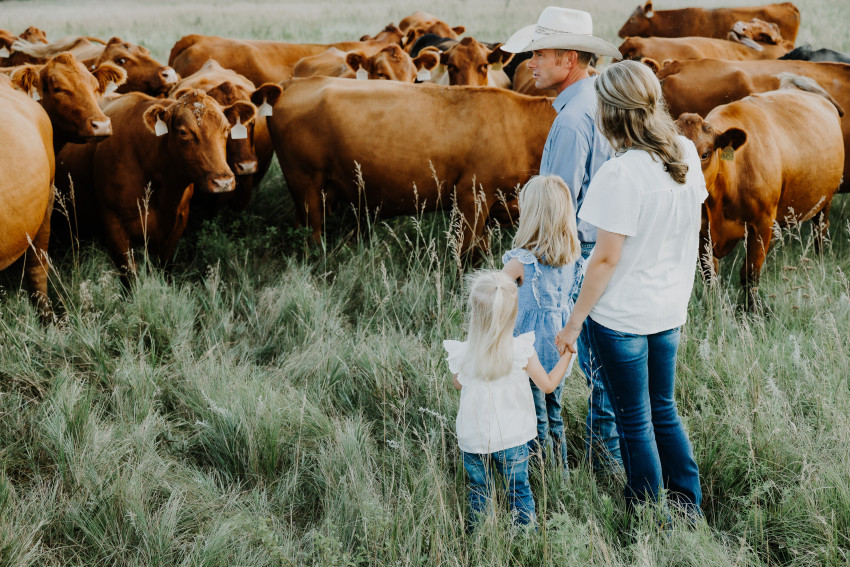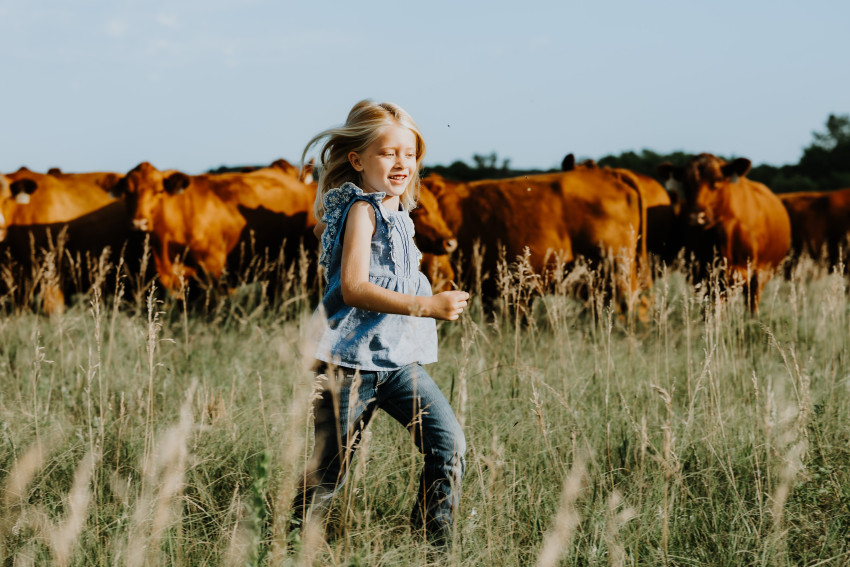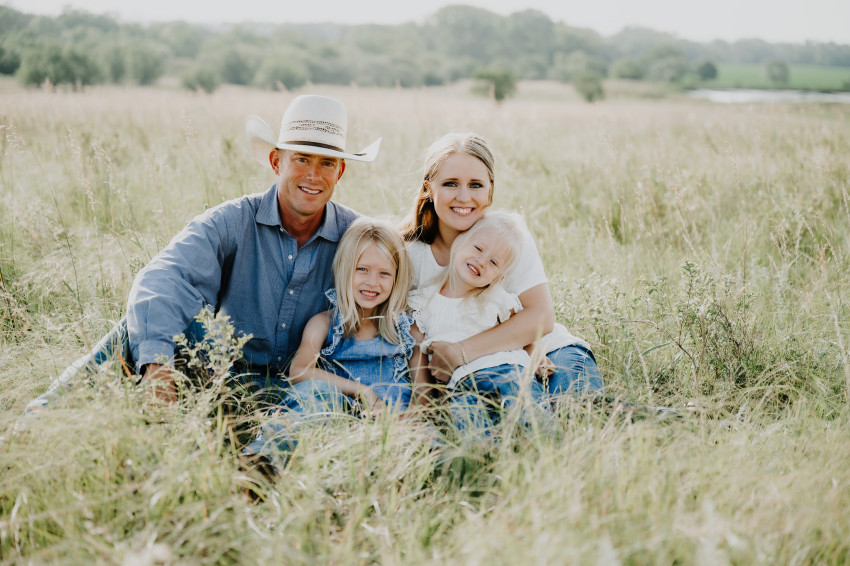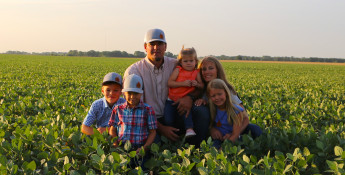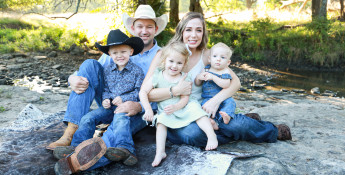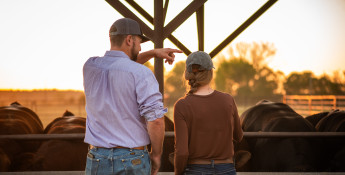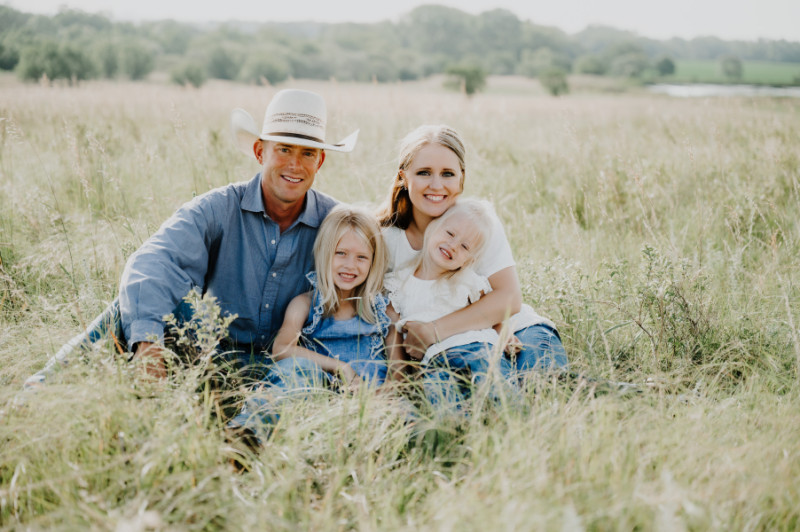By Kansas Living on November 5, 2025
Meet the Nelson Farm Family
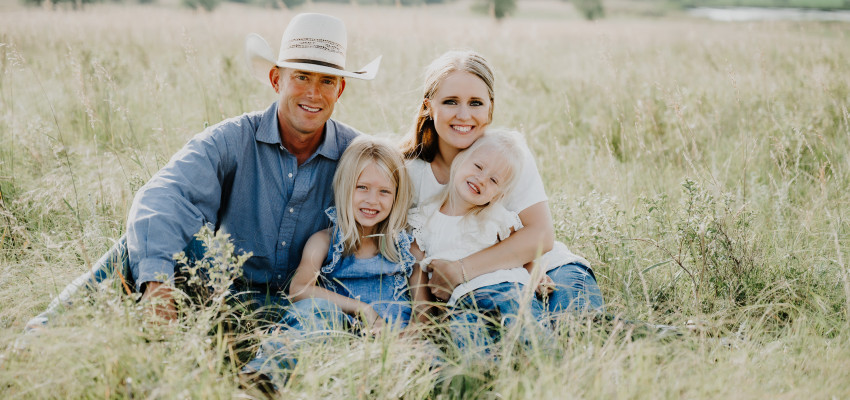
Jason and Haley Nelson and their two girls, Mallory and Grace, live in Jewell County. Jason grew up on the farm and, after graduating from Fort Hays State University with a degree in beef cattle management, he returned home to farm alongside his dad, Kendall, and twin brother, Jared. Together, they operate Nelson Family Farms. Haley grew up in town and has learned a lot from
the Nelsons about farming and ranching.
They raise a red composite cow herd that calves in April and May, typically weaning calves in early fall, growing steers to 1,000 pounds in their feed yard, then shipping them to a different yard to be finished and retaining ownership all the way to the rail. They recently formed Nelson Beef Development LLC and have built a small-scale custom heifer development yard, where they do custom weaning and backgrounding, along with custom heifer development and artificial insemination. Their farming operation consists of a no-till corn/soybean rotation, along with alfalfa and summer annuals raised for grazing and hay.
Learn more about this family.
How do you teach your kids about farming/ranching and the value of hard work?
On Nelson Family Farms, it’s not unusual to see one or two kids helping with whatever the daily task might be. Whether it be Mallory or Grace tagging along or Jared’s kids — Isaac, Carter, Jasper and Oakley — we feel like they learn best by simply being a part of the tasks at hand.
What does winter look like on your operation?
Winter is a busy season for us. Our feedlot is usually full, and our cow herd is rotating on stalks, which means they’re grazing in cornfields after the crop is harvested. This is a great way to feed the cows efficiently while also making good use of what’s left in the field. We're also cutting cedar trees and prepping for spring grass burns.
What’s the best advice you’ve ever received about ranching or farming?
The best advice Haley ever received came from Jason’s 97-year-old grandmother, Ila. Ila told Haley early on, “Don’t ever learn how to do something on the farm that you don’t want to have to do the rest of your life.”
What methods do you use to protect the environment?
We try to improve our natural resources to be as good as, if not better than, when we started using them. We work to increase our grass production through fire and cedar and brush management. We use a strict no-till regimen to protect our soil, and we spread manure from our feeding operation to decrease the use of synthetic fertilizer.
What is your family’s favorite protein? And what is your favorite way to prepare it?
It’s no surprise that beef is our favorite protein. When Mallory was little, she didn’t care for chicken fried steak, which was a problem for Jason because it is one of his favorite meals. So, we took our favorite chicken fried steak recipe but cubed the meat and created “steak bites,” which is now one of Mallory’s favorite foods. Get Mallory's Steak Bites recipe here! You could use your favorite recipe and cube the meat to create smaller pieces that are more kid-friendly or try our favorite way of making it.
What made you want to become farmers/ranchers?
Growing up on the farm, Jason has always enjoyed working with livestock. He also learned at an early age the large responsibility it takes to care for our natural resources and feels it’s an honor to be able to do so.
What three things matter the most to you as a farmer/rancher?
First, being able to raise our family on the farm and instilling in the next generation the value of hard work. Second, preserving and bettering our resources. Third, the freedom of being self-employed.
How do you handle extreme weather — droughts, floods, blizzards, etc.?
Simply by keeping a current contingency plan and executing it as needed.
What is the hardest and best part of your job as a farmer/rancher?
To Jason, the hardest part of the job is keeping ahead of cedar trees and brush. The best part is calving and artificial insemination (AI) season.
How do you balance tradition with innovation in your operation?
We calve later, so we’re aren’t feeding as much hay and we can focus more on grazing. We push our AI program really hard by breeding to high maternal bulls and utilizing DNA and Expected Progency Difference, or EPDs, to help us choose our replacements. We also utilize individual carcass data from our steers to make sure we are producing high-quality beef for consumers.
What does sustainability mean to you?
Sustainability means improving/growing what is given to us. We work hard to improve the natural resources around us, as that is what ultimately takes care of our operation. If we can make it better for us, it can give the next generation an edge to keep that going.
What’s a typical day/week/month look like for you?
A typical day for Jason starts by feeding the cattle in the feed yard by feeding each pen their custom rations, making sure the cattle are healthy and their waterers are working properly. Depending on the time of year, he would then health check the cow herd in the pastures, work on haying, fixing fence or harvesting the crops.
How do you care for your animals?
We utilize low-stress handling techniques and strive to decrease stress on animals by utilizing fence-line weaning and proper vaccination protocols.
What is one thing you wish consumers knew about your operation?
We have the utmost respect for our natural resources, and we know full well that without proper care, we can’t stay in business.

